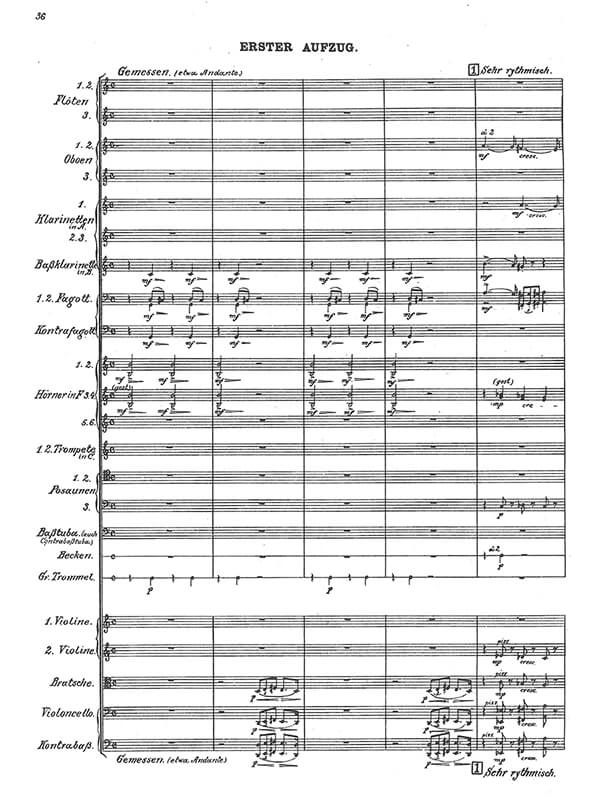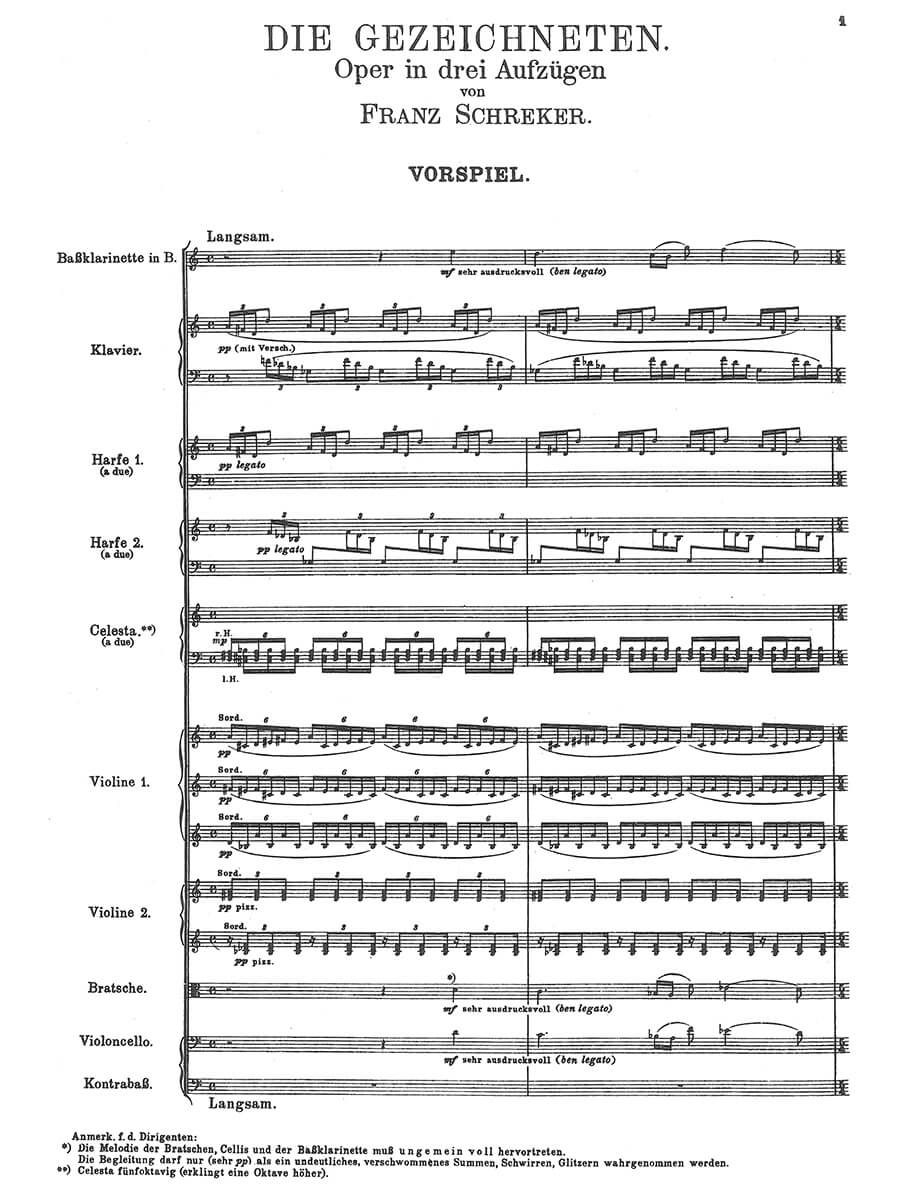Die Gezeichneten (in two volumes with German libretto)
Schreker, Franz
98,00 €
Preface
Franz Schreker – Die Gezeichneten (1913-15)
(b. Monaco, 23 March 1878 – d. Berlin, 21 March 1934)
Opera in three acts on a libretto by the composer

Preface
“My poor, poor Alex.” Thus the young and beautiful Alma Schindler, soon to become Alma Mahler, wrote of Alexander Zemlinsky in her diary on 20 November 1901. We can only share her sympathies. Zemlinsky had been her composition teacher and stalwart companion in piano duets since summer 1900. From this there evolved a torrid love affair that left both parties in a heady state of amorous intoxication. Alma, a stunning beauty and brilliant socialite who held male Vienna spellbound with her obvious musical gifts and intelligent conversation, had fallen head over heals in love with a talented young musician of limited means and unprepossessing appearance. “Everything about him is holy to me,” she confided steamily to her diary on 9 November 1901. “I would like to kneel before him and kiss his loins – kiss everything, everything! Amen.” Three days later, however, the steam had evaporated: “I can’t even think of writing to Alex. I feel absolutely nothing for him.” The intervening factor was Gustav Mahler, and the rest is history: Alma wrote a chilling and derisive letter to Zemlinsky that brought howls of pain from him in response. At the end of his second reply he could only stammer: “What have you got to show for all your riches? Don’t I have more in every other respect, too? I’m terribly ugly, agreed, but now I thank God that I am. And I thank God that there were so many girls who saw beyond my ugliness and reached my soul, and who never said a word to me about it, so that I know, despite all else, that I am a human being and not to be belittled, a man of some worth after all […].” Poor, poor Alex.
Zemlinsky never entirely recovered emotionally from this crushing setback. Alma, as we all know, went on to a long and fruitful career of further male conquests, one of whom, scarcely six months after she had been widowed by Gustav Mahler in 1911, was the young and handsome composer Franz Schreker. Zemlinsky and Schreker had developed a solid professional friendship in the Viennese musical world, and both concentrated their efforts on the theater. But there was a difference: Schreker conceived and wrote his own librettos, whereas Zemlinsky did not. Thus it came about, in summer 1911, that Zemlinsky asked Schreker to write a libretto for him on a subject of special psychological significance: it was to be “the tragedy of an ugly man.”
Schreker set to work with gusto, and before long he had produced the libretto to Die Gezeichneten on a freely conceived plot set in the Italian renaissance. But while writing the text, his mind brimmed over with musical ideas for its setting. Eventually he developed such a personal attachment to his new creation that he felt he had to set it to music himself: “The more I worked on it, the more abhorrent, the more unbearable I found the thought that not I, but another would compose the music to it, music that was already taking firm shape and form within me. And it seemed to me as if, along with the libretto, I was giving [Zemlinsky] my musical self, as if I were selling my innermost soul, my very life. And I decided I would fight for the libretto. It wasn’t necessary. My colleague in Apollo was a reasonable man and understood me without my having to say much.” …
Read full preface / komplettes mVorwort > HERE
Score Data
| Edition | Opera Explorer |
|---|---|
| Genre | Opera |
| Pages | 604 |
| Size | 210 x 297 mm |
| Printing | Reprint |
